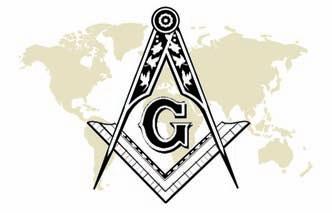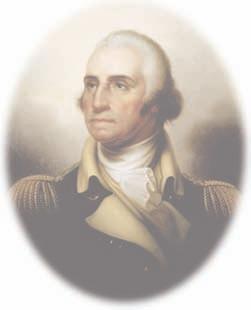
6 minute read
George Washington, Early American Futurist
Stewart Miner ,
Grand Secretary Emeritus
Remarks of MW Stewart W. Miner, Grand Secretary Emeritus, on the occasion of the Reenactment of Laying of the Cornerstone of the Washington Monument, on July 18, 1998
On this occasion, when we are assembled to celebrate the 150th anniversary of the laying of the cornerstone of this magnificent monument, erected in tribute to and in memory of the Father of our country, it is appropriate that we briefly reflect on the nature of the America in which Washington lived, on his response to the issues of his day, and on the legacy which he decreed to us, the citizens of this great country. The character of this nation, like that of all other nations of consequence, has been established, in large part, by the work, the words, and the wisdom of its leaders. In that respect our country has been richly blessed, and never more so than during the lifetime of George Washington. By virtue of decades of self sacrifice and selfless service, during which he solicited the assistance of able and like-minded men, Washington’s work and words, tempered always by calculated measures of wisdom, led his colonial compatriots first to demand and then to accept a new and revolutionary concept of nationhood.
Washington lived and worked at a time in history when long established values — social, economic, and political — were being subjected to unparalleled scrutiny and challenge, here in America and increasingly throughout the civilized world. During his lifetime, extending from his birth in 1732 until his death in 1799, a scant 67 years, his America suffered through scores of trials, all associated with the winning of freedom, the correction of a multitude of social and political wrongs, the development of a sense of national unity, and the creation — after decades of deprivation, dissent, and uncertainty — of a federal government.
WASHINGTON’S WORKS
By his workmanlike response to the challenges of his day, Washington distinguished himself. In his responses he consistently demonstrated that he was an uncommon man; a man of imagination, resolution, and action; a man who opted always to manage, and not to avoid, the inevitable forces of challenge and change. In sum, by virtue of persistent work and wise words, Washington established himself not only as a patriot, but more importantly, as an early American Futurist. His interest was always focused on the tomorrow of time.
Washington was looking ahead, for example, when as a very young man, shortly after his 16th birthday, he journeyed into the unknown of the frontier to survey the holdings of Lord Fairfax along both sides of the Blue Ridge in the west of Virginia. In this mission he participated in the creation and recording of primary points of reference that formed the basis for the subdivision of land and property from that day to this. By his surveying, he served the future. Washington was looking ahead when he defended his country as a soldier and, in due time, as the Commander-in-Chief of the Continental Army. During his years in the military, Washington experienced both the agony of defeat and the bliss of victory, but after a battle was concluded, win or lose, he never looked back, convinced that strife, once finished, was but the prelude to challenge anew. By his military service, he served the future.
Washington was looking ahead when he served in the possibility of future instability in America. In proclaiming House of Burgesses, in the Continental Congress, and as the virtues of and the necessity for unity, he served the a member and presiding officer at the Constitutional Confuture. vention in Philadelphia, where after a long and taxing Washington recognized in this message that in the affairs summer, during which each proposal seemingly sired its of nations, change is a constant, domestically and own counterproposal, the greatest abroad. Furthermore, in coping fundamental document in the history with change, he suggested, Amerof the world was produced. By his work as a legislator, he served the In identifying possible icans should be alert to the consequences of factionalism, future. Washington was looking ahead sources of disruption to geographical or political; to the dangers that were inherent in the when, following the approval of the possible excesses of administradraft of the Constitution by the the nation’s peace and tion; and particularly, to the required number of states in 1788, insidious wiles of foreign influence. he accepted his unanimous election as the first President of the United tranquility, Washington Clearly Washington was apprehensive of excess, regardless of States by the Electoral College on February 4, 1789. He then served served the future. source. In identifying possible sources of disruption to the nation’s two full terms, during which the major peace and tranquility, Washington features of the Federal Government served the future. took form. Upon the inauguration of his successor, John In his Farewell Address Washington alluded to the necesAdams, in 1797, Washington returned to Mount Vernon to sity for Americans, to promote, “as an object of primary live out the rest of his days. By his work as our first Presimportance,” institutions whose purpose was the dissemident, he served the future. ination of knowledge. “In proportion,” he said, “as the WASHINGTON’S WORDS structure of government gives force to public opinion, it is Washington also served the future by what he said, even essential that public opinion be enlightened.” Clearly he though he was a man of few words. He was not particusaw an immediate need to educate the American public, larly prone to speech making, but when he spoke, his at a time when the educational process was largely limwords tended to be pearls of wisdom. His opinions were ited to the already advantaged. In promoting the heeded by the masses, here and abroad, and his stateadvancement of Americans by education, Washington ments and views had unusual impact on the resolution of served the future. issues of import. Perhaps his greatest pronouncement Finally, in his Farewell Address Washington proclaimed was his Farewell Address, which was, contrary to title, his belief that religion and morality were the indispensanot an address at all, but rather a written enunciation of ble supports of political prosperity. The man who would how he viewed the America that was yet to be. While time claim the tribute of patriotism, he stated, would do so in precludes a line by line analysis of this great document, vain if he were to subvert what Washington considered to a few short comments may suffice to establish that not be “the great pillars of human happiness, the firmest only by work, but also by word, Washington served the props of the duties of men and citizens.” In his words, future. “Reason and experience forbid us to expect that national In his final address to the people of America, after thankmorality can prevail in exclusion of religious principle.” In ing his countrymen for the honors that had been heaped supporting the proposition that there is a spiritual dimenupon him, Washington proceeded to articulate the future sion of life, Washington served the future. of the nation as he saw it. He told his countrymen that WASHINGTON’S CHALLENGE unity of government was the pillar of their independence, These brief references to the experiences of Washington the support of their tranquility at home; of their peace lead us to contemplate what we should do, on this memoabroad; of their safety; their prosperity; of the liberty that rial occasion, to be deserving of the benefits that we enjoy they so highly prized. While one should not attribute clairvoyance to Washington, he did clearly foresee the continued on page 23







